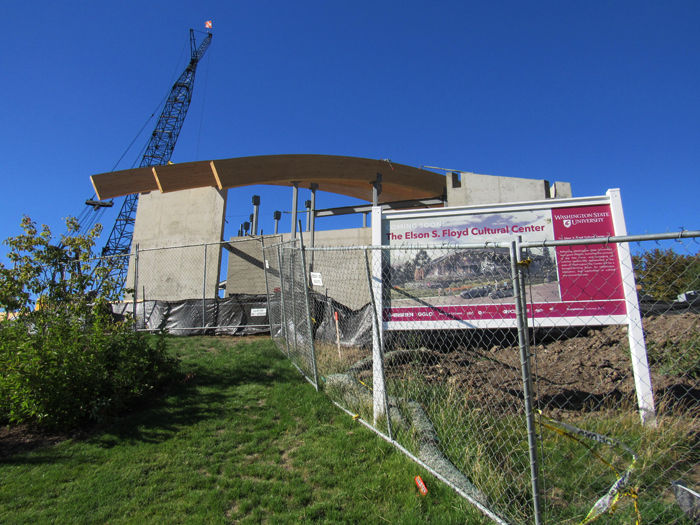Schulz builds his legacy
September 13, 2016
Though there have been grandiose declarations of a new era of fiscal responsibility in the funding of construction at WSU, it’s business as usual for WSU Facilities Services – Capital, the division of Facilities Services that oversees construction and improvements on campus.
In fact, Capital finds itself rather busy these days – they are currently overseeing seven different projects in Pullman and on other WSU campuses, said Joe Kline, assistant vice president for Facilities Services Capital.
Kline said that even though WSU President Kirk Schulz decided that the university would not begin new projects without cash in hand, that didn’t mean things were suddenly going to change.
“(Schulz) is just trying to say that he wants us to be more fiscally responsible,” Kline said, though he made it clear he could not speak for the president.
Kline did not see any indication that Schulz’s new requirement will drastically change the way Capital operates. What will likely happen, Kline said, is WSU will simply ensure it has the money for each phase of construction before breaking ground.
But how are these projects paid for? From student tuition? From loans? From philanthropic giving?
Kline explained that there are three different types of construction projects around campus: bond funded, privately funded and state funded.
The privately funded projects can involve either individuals or organizations approaching WSU, or the WSU Foundation, a nonprofit organization, going out and looking for donors who would be willing to fund a specific project, Kline said.
“Different folks have different ways of doing things,” Kline said, as private donors can sometimes have strings attached to their donation.
State funded, on the other hand, take a long, arduous, bureaucratic process. Since the state operates on a two-year timetable, this can be the slowest method.
The bond-funded projects require WSU to take out a loan, which will be repaid slowly over time from a portion of student’s tuition required by law to be paid, according to WSU News.
“WSU provides some (money) up front for planning,” Kline said.
Kline believed that Schulz was just trying to signal to those worried about the high cost of going to college, WSU was not going to take a leap in the direction of big spending.
Kline could not point out any cases where WSU has found itself in a crisis because of overwhelming construction costs.
So there have been no disasters in the past, WSU has relatively stable ways to fund projects, and there isn’t much change coming. But what about the actual process of picking builders?
WSU engages in typical industry practices while seeking out companies to design and build new projects for WSU. Kline mentioned that for most projects, WSU will hire an architect and then begin an auction to see which construction company will build the building, where the lowest bidder wins.
As a result, there are a variety of private companies building different projects on campus – allowing for free competition and minimalizing the cost.
Considering that in some of these projects, our tuition money is directly being siphoned off to pay for them, one might wonder if there is a need for a watchdog to ensure financial accountability.
Again, Kline pointed out that there hasn’t been a problem in funding as far as he could remember. For now, it appears Capital will continue to operate as it has before, with no disruption from above.
Just as President Floyd was celebrated for encouraging diversity on campus, Schulz could be trying to build his legacy as a shrewd fiscal conservative – ensuring that every dollar of tuition is spent wisely.
In the age of ever-increasing college costs for students, that might be just the spirit WSU needs moving forward.
Harrison Conner is a junior economics major from Stanwood. He can be contacted at 335-2290 or by [email protected]. The opinions expressed in this column are not necessarily those of the staff of The Daily Evergreen or those of The Office of Student Media.



















